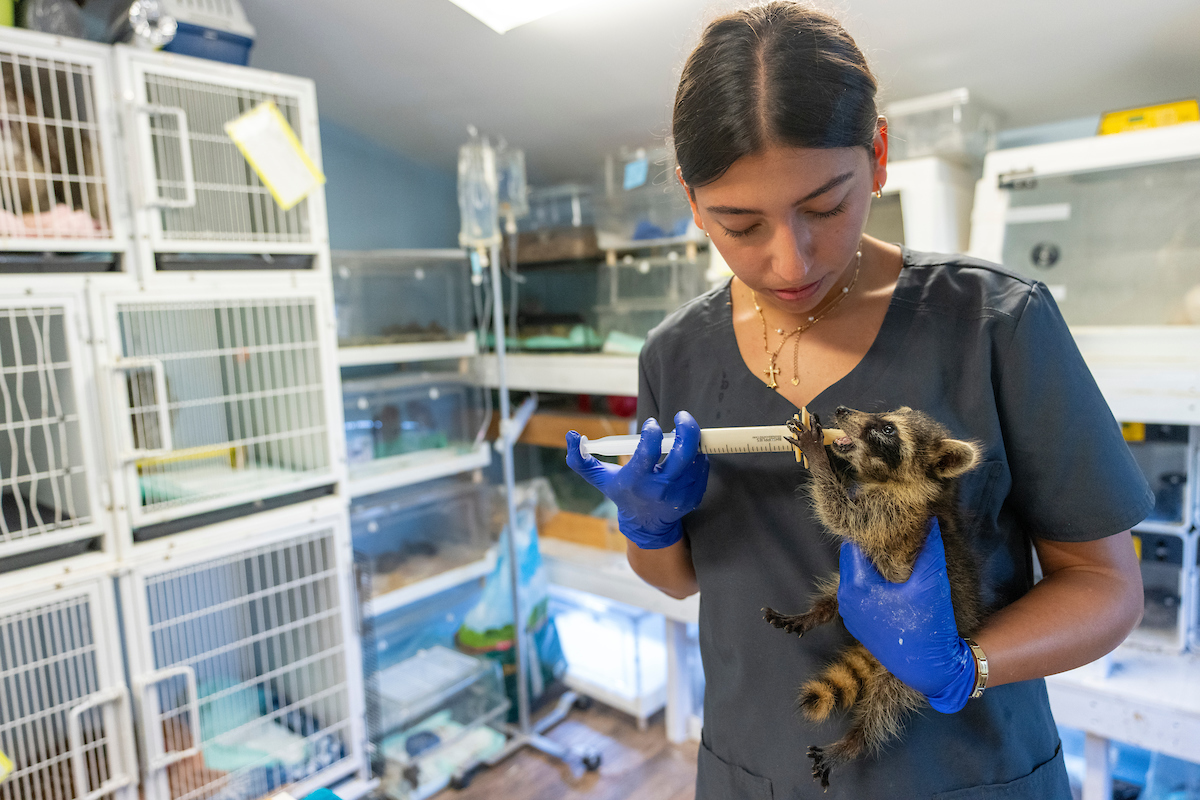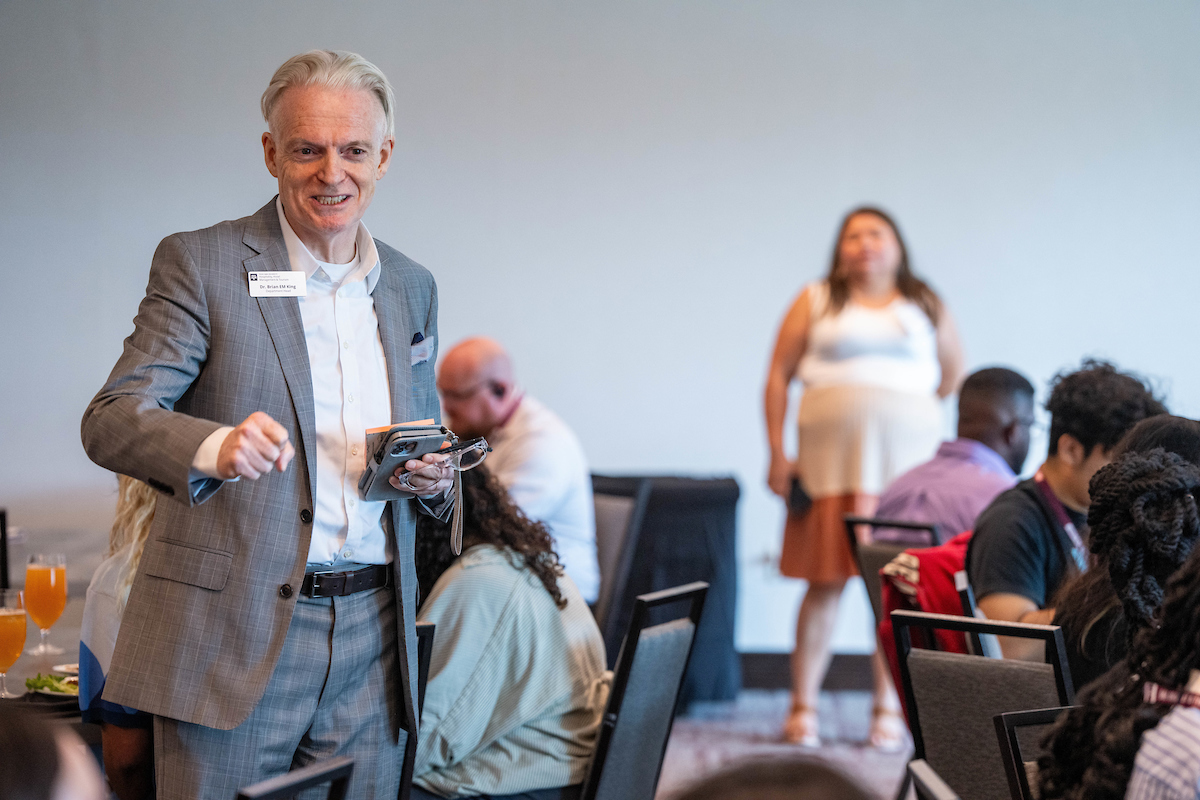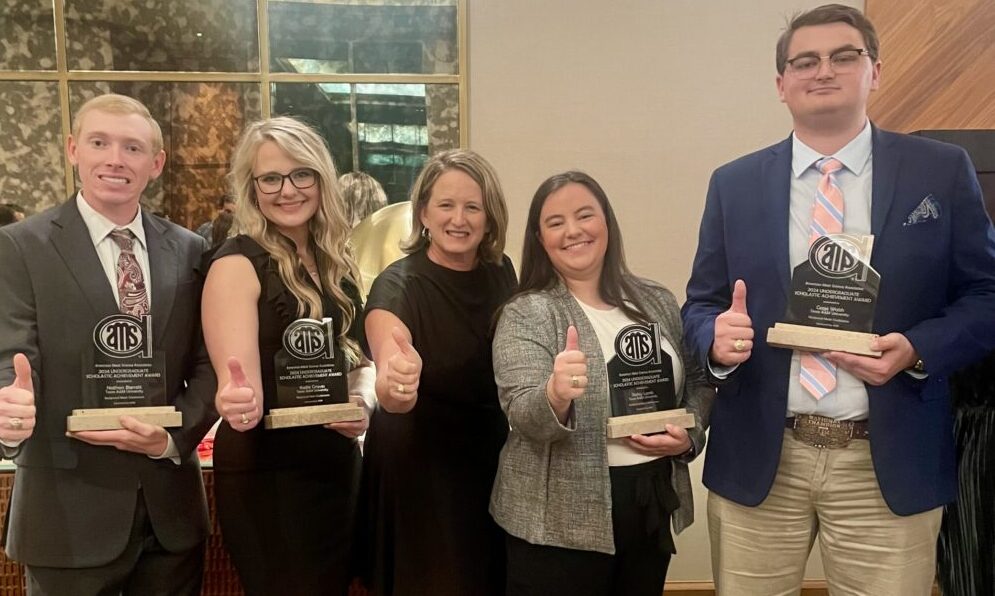Changing the world through the science of soil
Julie Howe’s mission to explore and advance agricultural solutions
As an undergraduate bioenvironmental sciences major, Julie Howe ’95 ’99 wasn’t interested in taking the required introductory soil science class. But what she learned about soil opened her eyes to potential solutions to many of our society’s greatest environmental challenges.
From exploring ways to hone the nation’s dynamic and complex food and fiber systems to teaching the next generation about how soil can mitigate water and air pollution, Howe dedicates her career to advancing the teaching, research and extension efforts around the science of soil.
Howe, Ph.D., a professor and associate department head for undergraduate programs in the Texas A&M College of Agriculture and Life Sciences Department of Soil and Crop Sciences, now teaches that very same soil science class that inspired her years ago.
She believes soil scientists, like herself, have a responsibility to expand awareness of this vital resource and use it to improve the profitability and environmental sustainability of agronomic systems.
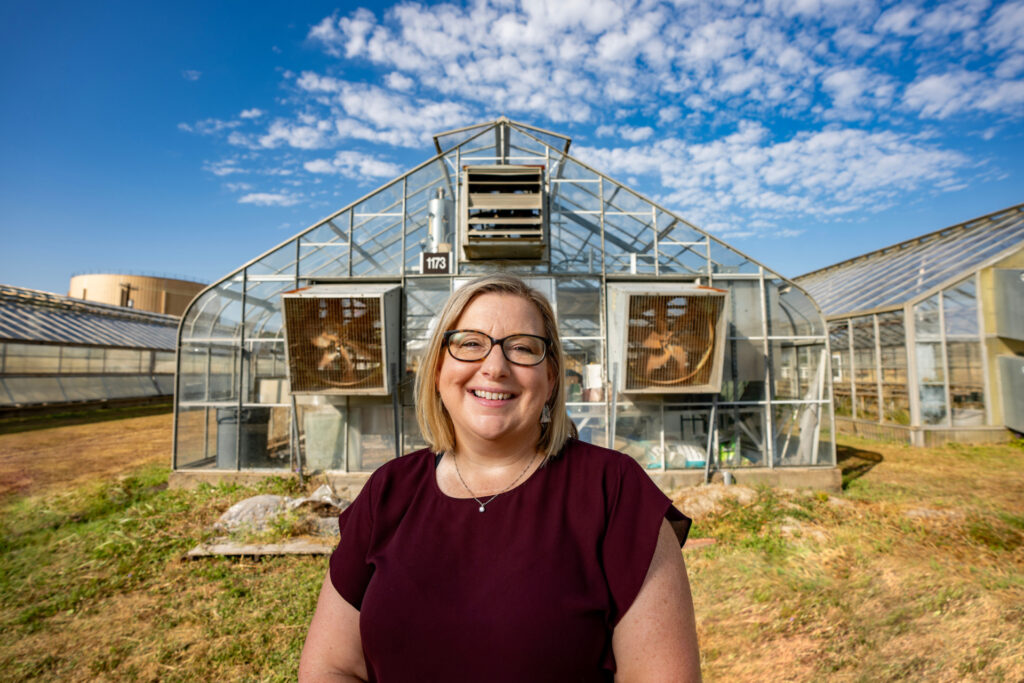
The continual search for answers
Howe is steadfast in her drive to solve problems through her various academic pursuits.
“I like coming up with answers because I see soil as something that’s underappreciated,” Howe said. “Sometimes our approach is more fundamental, where we look at the detailed chemistry of the soil; then other times our approach reflects more of an applied understanding, like when we explore land management practices and the impact those have on our world.”
Howe earned a bachelor’s degree in bioenvironmental sciences and a master’s degree in soil science from Texas A&M. She earned her doctorate in soil science at the University of Wisconsin.
In graduate school, she became interested in how plants take metals out of the soil and clean up the environment. Since then, her study has expanded to include nutrients and the interface between the soil and plants. Currently, much of her research explores how soil management practices impact the transformation of nutrients and carbon in soil and water.
“An understanding of how plants interact with the soil perfectly primes us to advance problem-solving around how we feed and clothe our growing world,” Howe said. “Plus, our water quality is intricately linked to the soil’s ability to filter and regulate water supplies. All those factors circle back around to our exploration of what makes those functions work best, which is carbon.”
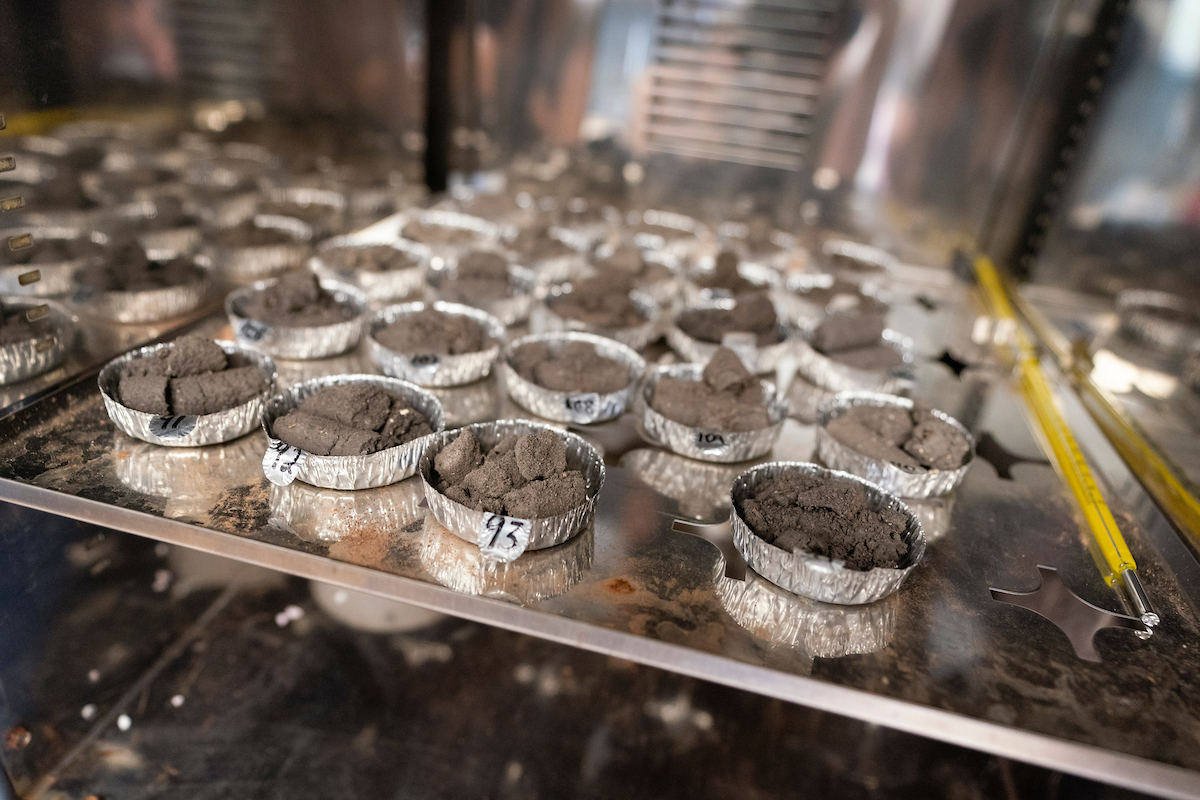
“I like coming up with answers because I see soil as something that’s underappreciated.”
Julie Howe, Ph.D.
Howe’s research projects include evaluating biofortified corn for improved zinc and vitamin A in corn and egg foods, studying the ability of root exudates to stimulate the soil microbiome to overcome drought stress, and exploring soil-carbon relationships to improve soil carbon sequestration and aggregation. In a project with NASA, Howe is looking at terraforming Martian soils for future crop production.
Howe’s proactive approach to bringing cutting-edge research expertise and resources to the department has benefited researchers and students. For example, in her efforts to further innovation at Texas A&M, she nominated Donald Sparks, Ph.D., to be selected as a 2022-2023 Hagler Fellow with the Hagler Institute for Advanced Study.
The institute selects top scholars for a year-long collaboration with faculty and researchers at Texas A&M. Sparks, the Unidel S. Hancock du Pont Chair in Soil and Environmental Chemistry and the Francis Alison Professor in the Department of Soil and Crop Sciences at the University of Delaware, is collaborating with researchers and students in the Department of Soil and Crop Sciences.
“Dr. Sparks is the preeminent soil chemist in the nation, and we have learned so much from his visits every couple of months,” Howe said.
Sparks’ research with the department explores the interaction of plant roots and soil particles as influenced by drought to understand how carbon from roots affects soil properties. In addition to providing fundamental knowledge that can be applied to cropping systems, this research has important implications for carbon sequestration and climate-change mitigation, Howe said. Howe is also joining him and other faculty to mentor a Hagler Graduate Fellowship recipient.
Additionally, for her research contributions to soil science, Howe was recently recognized as a Fellow of the Soil Science Society of America, the organization’s highest award for career achievements. She also received the Early Career Research Award from the Southern Branch of the American Society of Agronomy.
Teaching others to see opportunities
With her experience working within research and innovation in the Department of Soil and Crop Sciences, Howe is positioned to teach her students to appreciate the importance of soil science — the study of soil as a natural resource that helps inform agricultural and environmental management of land resources. Many of her students have been inspired to pursue agronomic research.
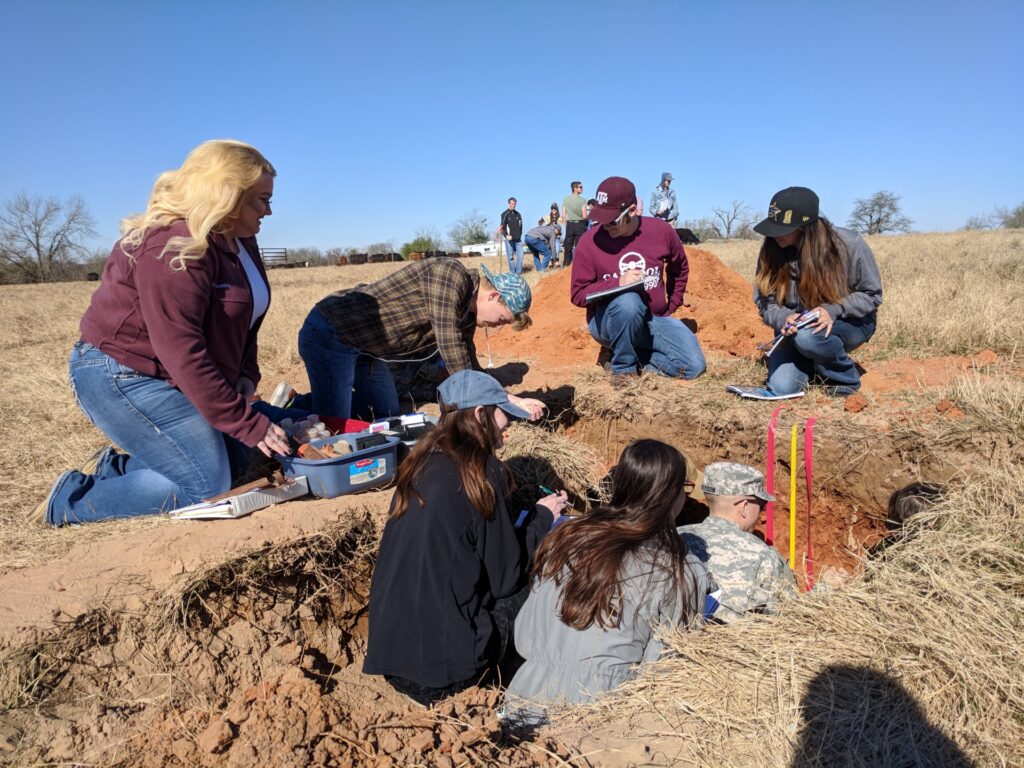
“I’m trying to open my students’ eyes to seeing something new,” Howe said. “I have research questions I want to address, but to solve them, I want students to help me accomplish those research objectives. My favorite thing is when students say, ‘I want to continue studying this, get a job related to this, have this be a part of my graduate career, change my major.’ I enjoy seeing my students succeed. A couple of them are faculty at other institutions, and that, to me, is the best reward.”
Committed to continually improving soil science education, she completely transformed SCSC 301, the introductory soil science course that first inspired her as an undergraduate.
“When it was my turn to teach it, I looked at what today’s students need to learn and how to make learning more accessible to all students,” Howe said. “So, I focused on teaching the concepts through experiential learning rather than focusing on analytical methods.”
Howe updated the course to include more technology and active learning. With a $10,000 competitive grant from the Center for Teaching Excellence at Texas A&M, she developed an online course that includes professional-grade videos and soil science kits for hands-on activities. Because of her innovative efforts, the department was able to quickly and easily convert SCSC 301 into an online and hybrid online/in-person course during the COVID pandemic.
As part of the course redevelopment, Howe updated all lab activities, published a revised lab manual, and instituted online bonus quizzes in lectures. She also began recording and posting all lectures, giving students no excuse to miss class. The lab manual has been such an effective teaching tool it is now used at other universities, and her experiential-learning teaching methods have been published in journal articles.
“I’m trying to open my students’ eyes to seeing something new. . . .
I enjoy seeing my students succeed.”
Julie Howe, Ph.D.
Howe’s commitment to soil science education also includes writing a chapter about soil habitat for the textbook Principles and Applications of Soil Microbiology last year.
Texas A&M has recognized Howe’s teaching excellence with the College of Agriculture and Life Sciences Dean’s Teaching Award and the Dean’s Early Career Teaching Award, the Soil and Crop Science Department Outstanding Achievement Award in Faculty Teaching, and she was named a Graduate Mentoring Academy Fellow.
Howe has also received the Mentoring Award as a joint award from the American Society of Agronomy, Crop Science Society of America and Soil Science Society of America as well as the Lloyd R. Frederick Soil Teaching Travel Award from the Soil Science Society of America.
Educating and serving beyond the campus
Bringing together her research and teaching efforts, Howe also extends her expertise to Texans in efforts to advance local recommendations for different crops through testing solutions. Howe explained how this is both a unique challenge and opportunity as Texas is filled with so many soils, climates and situations that often require custom solutions.
“That’s where I like to get in and try to tackle some of those issues,” Howe said. “I really care about people and making sure everybody has what they need. When you’re interested in what you do, I think it’s contagious.”
Complementing her continuous service to the people of Texas, Howe is the principal investigator for the Texas Climate-Smart Initiative, a $65 million project funded by the U.S. Department of Agriculture-Natural Resources Conservation Service, USDA-NRCS. The five-year pilot project will work with Texas’ commodity producers to adopt climate-smart agriculture and forestry practices, assess benefits and develop models for voluntary, market-based climate solutions. Researchers from the Texas A&M AgriLife Extension Service, Texas A&M AgriLife Research and the Texas A&M Forest Service will partner with groups across the state to work with producers and teach them how to adopt these practices in their agricultural operations. The solutions explored during this project have the potential to be scaled to other parts of the U.S.
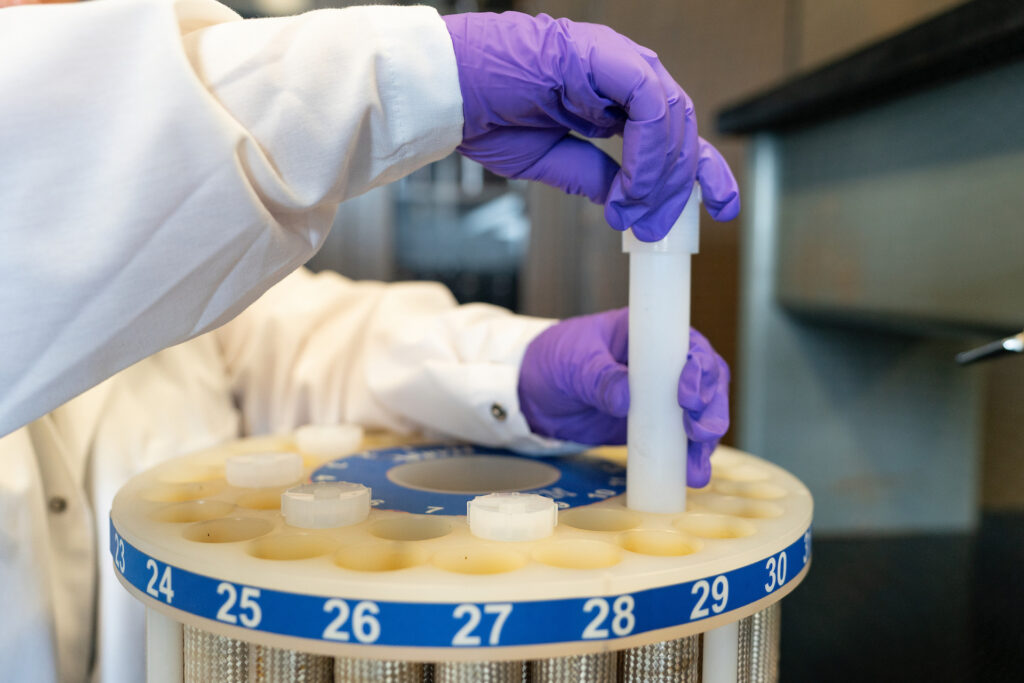
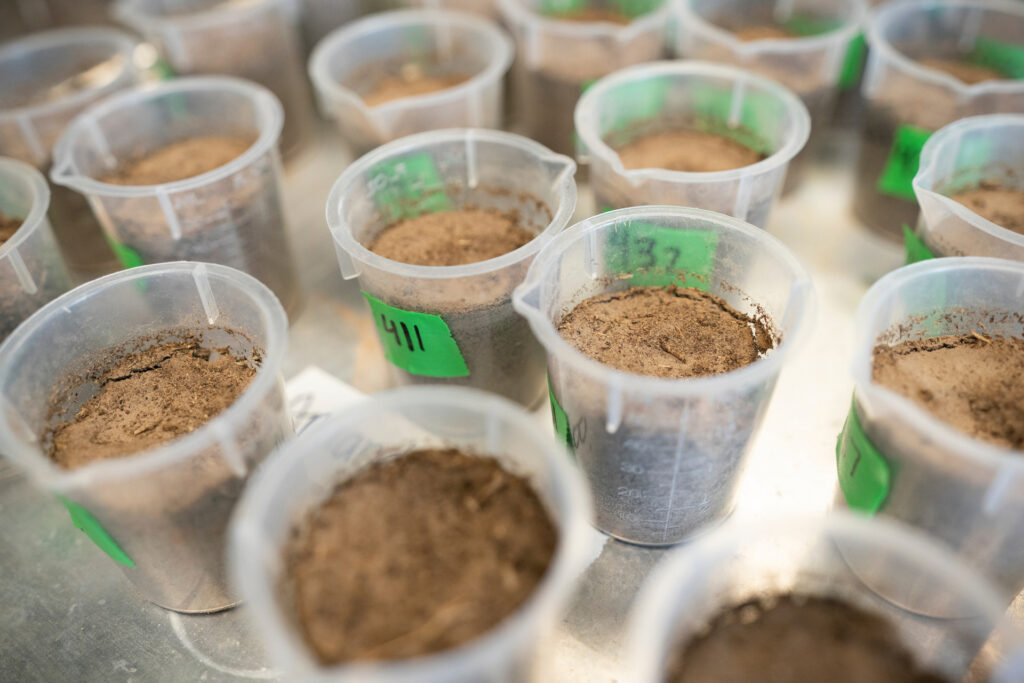
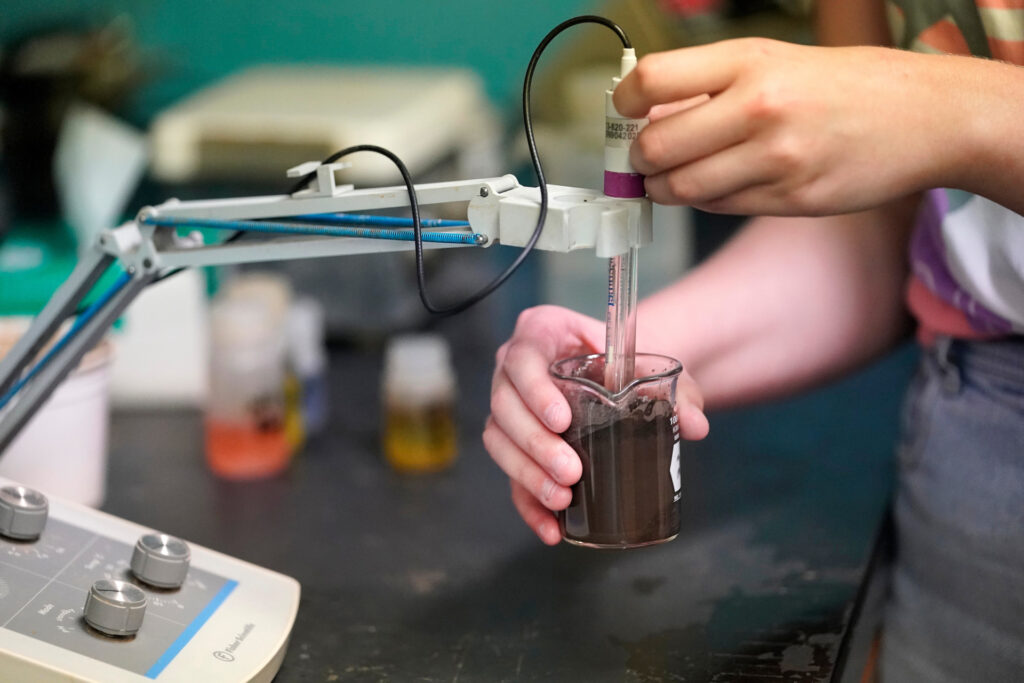
Additionally, Howe leads the Texas A&M Soil Characterization Laboratory. This analytical research service laboratory characterizes soil for internal clients, such as faculty and graduate students, and external clients, such as the USDA-NRCS and industry. Clients’ characterization needs are often for urban and environmental applications as well as agriculture. The laboratory evaluates the chemical, biological and physical properties of soil, such as particle size, cation exchange capacity and carbon content.
“We commonly focus on carbon and particle size to get more detailed information about soil health,” Howe said. “When we run samples for our programs, we are a research lab. We analyze the data from our experiments to learn new information and advance science. When external clients, such as the NRCS, come to us to us, we only run their samples and provide data. We don’t evaluate their data or run any experiments.”
A selfless dedication and desire to change the world
Beginning as an undergraduate at Texas A&M, Howe has always strived to identify solutions and teach others how to be a part of those solutions. Ultimately, this dedication has led her to a multifaceted career that has advanced the study of soil science and increased our understanding of the many intricacies of agriculture.
“Dr. Howe is an exceptional scientist, providing leadership in many roles,” said David Baltensperger, Ph.D., professor and head of the Department of Soil and Crop Sciences. “She excels in scholarship and research while being an innovative and enthusiastic instructor. I am grateful for her unwavering service and outreach to Texas producers and the entire agriculture industry.”
And for Howe, enjoying what she does is her biggest accomplishment. “I’m always excited about my work,” Howe said. “No matter what you do, you’re influencing the world. Do your job well, and you’ll make an impact.”

